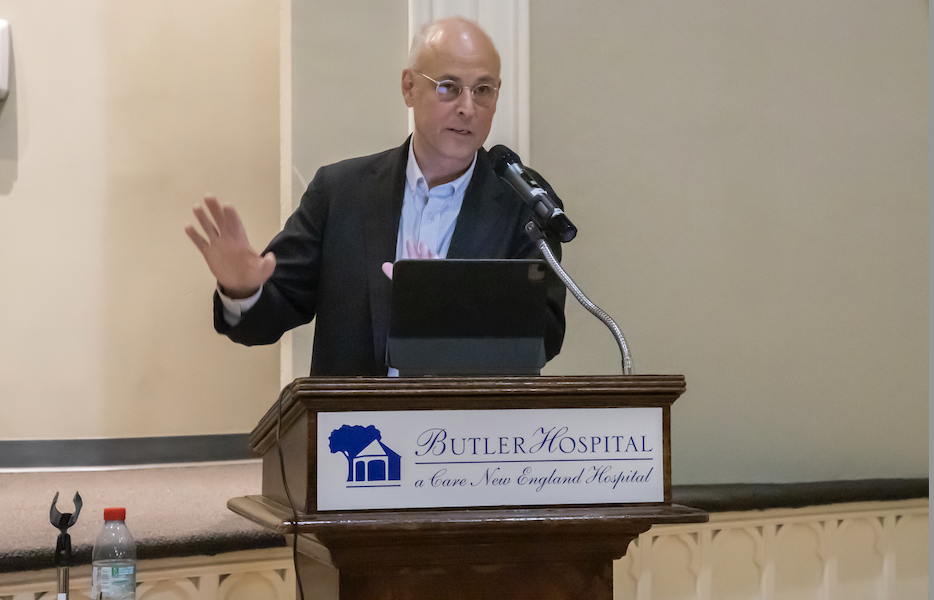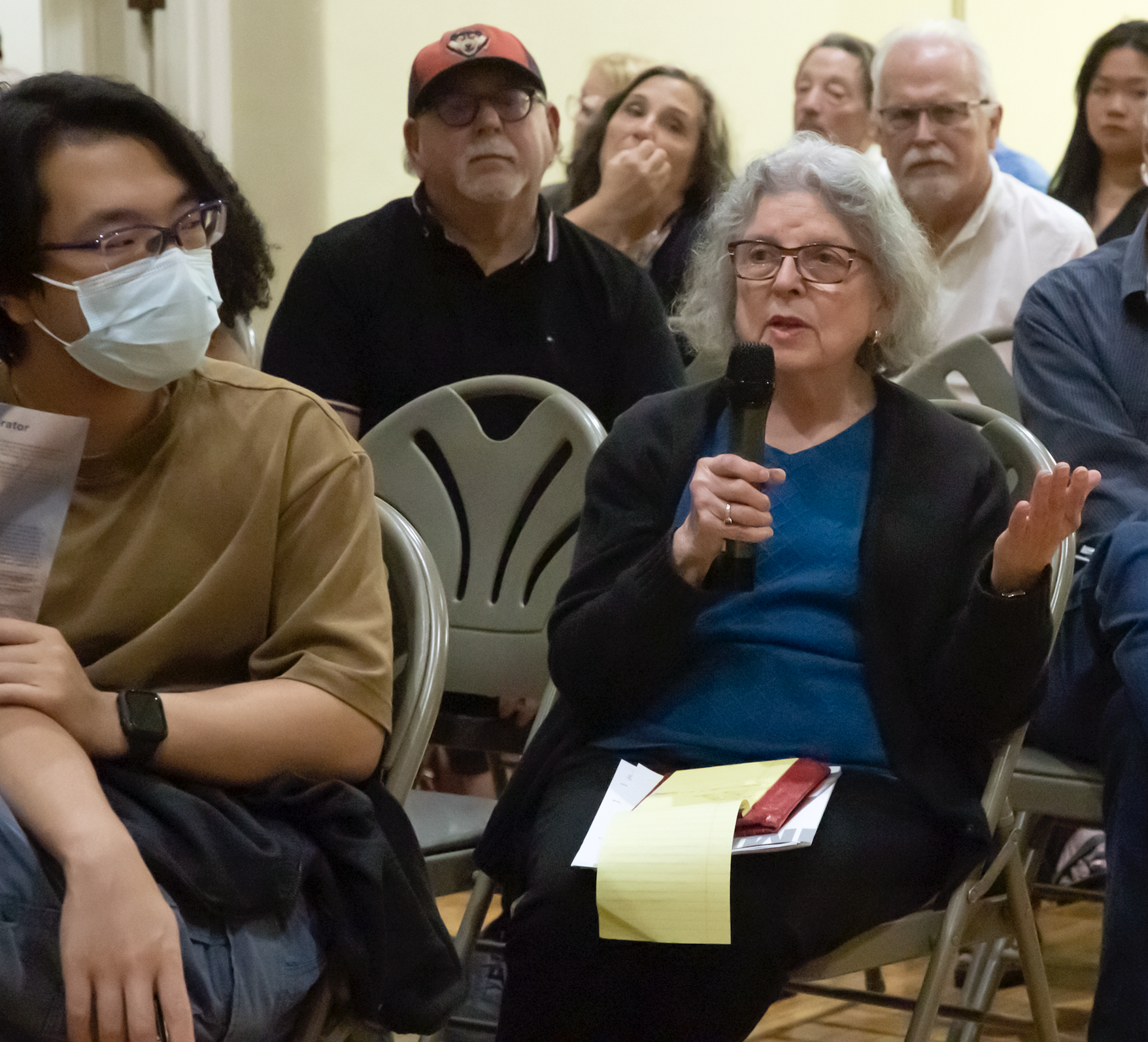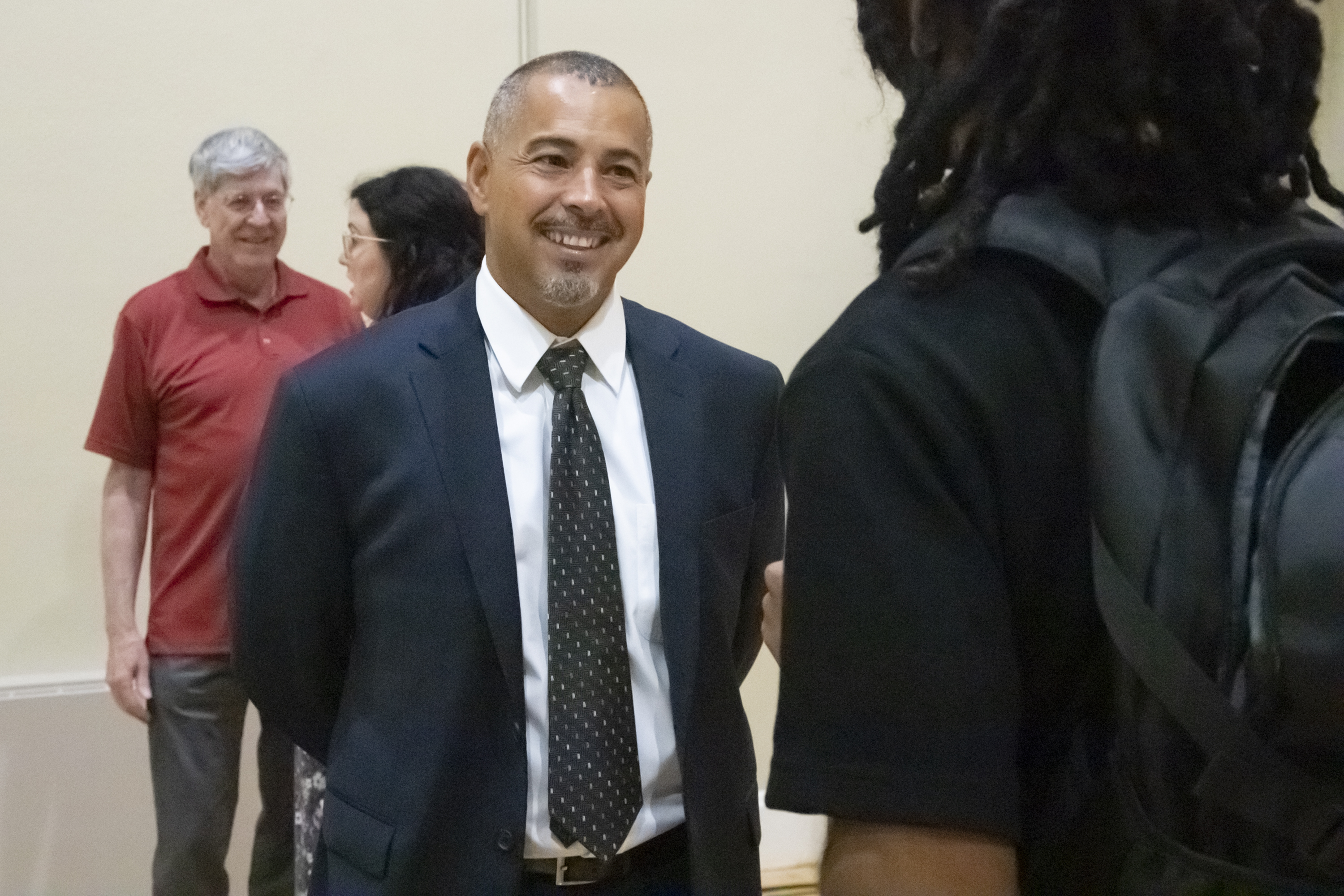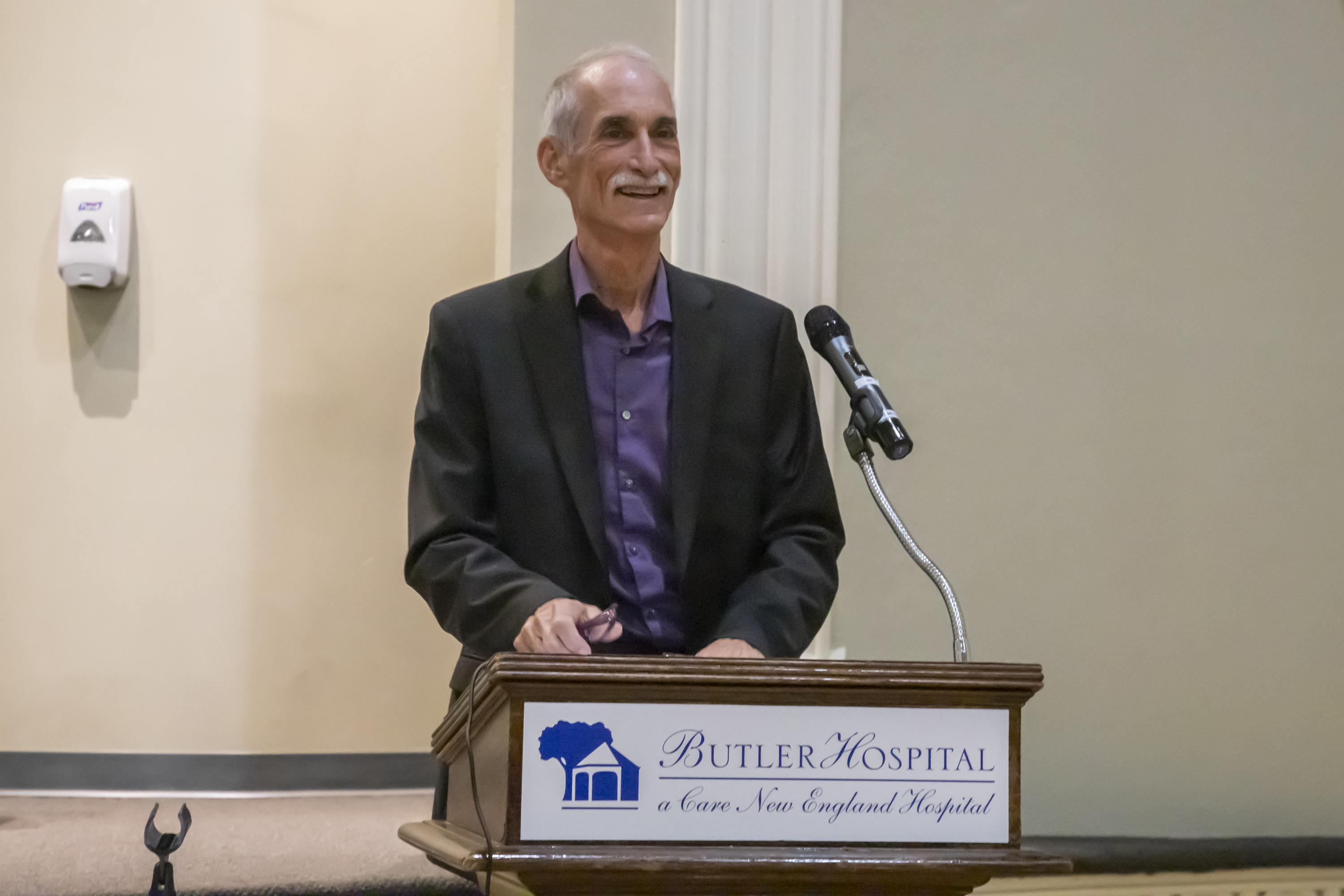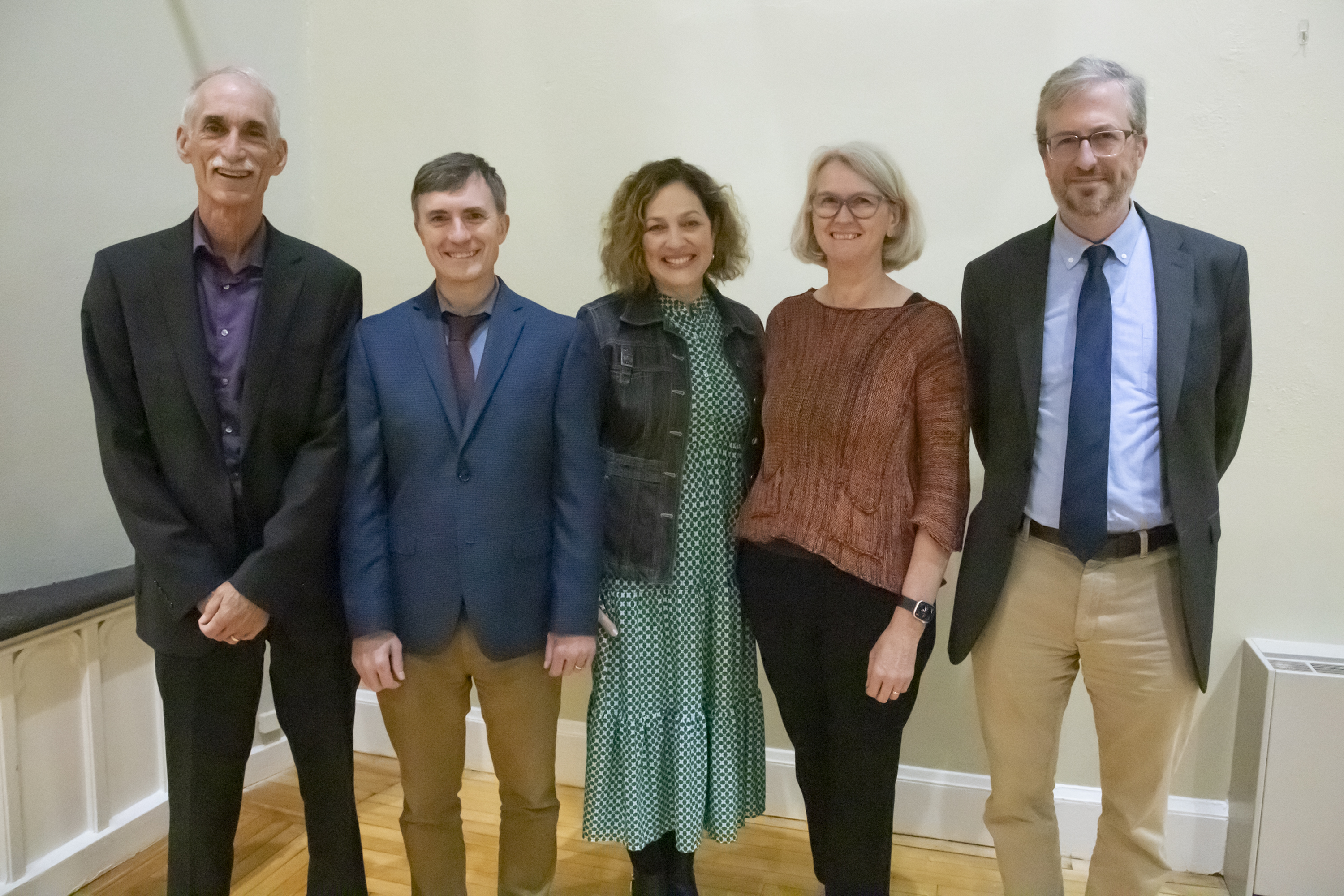Carney and the RI community join together on World Alzheimer's Day for a discussion about the latest Alzheimer’s disease research and treatment
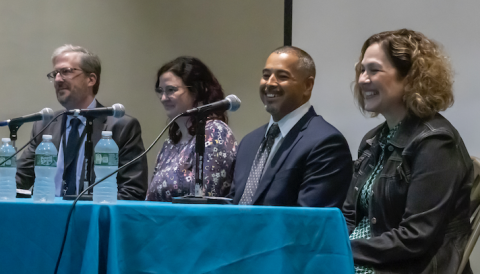
On Thursday, September 21, Brown alumnus and award-winning journalist David Shenk (‘88) adjusted his mic at the lectern in Butler Hospital’s Ray Hall. The author of the book The Forgetting and creator of a podcast and film about Alzheimer’s disease (AD), Shenk was visiting Providence to moderate a conversation in honor of World Alzheimer’s Day about how Rhode Island scientists are contributing to our understanding of the disease and development of new therapies. Looking out over the full auditorium, he invited everyone to close their eyes.
“Think of one person you know whose cognitive life has been diminished and taken away from them and from all of us by this disease,” Shenk said. “Think about an alternative history where that didn't happen. I’m thinking about my mother, and what she would have been able to give to me and to my family, and to her community, and to this world, with all of her wisdom and experience. Think of how that would have changed the world if you add up your person, my person, everyone in this room's person.”
When audience members opened their eyes, Shenk told them: “Scientists now believe that we are going to be able to reach that world.”
For local resources for caregivers, patients and how to get involved, click here.
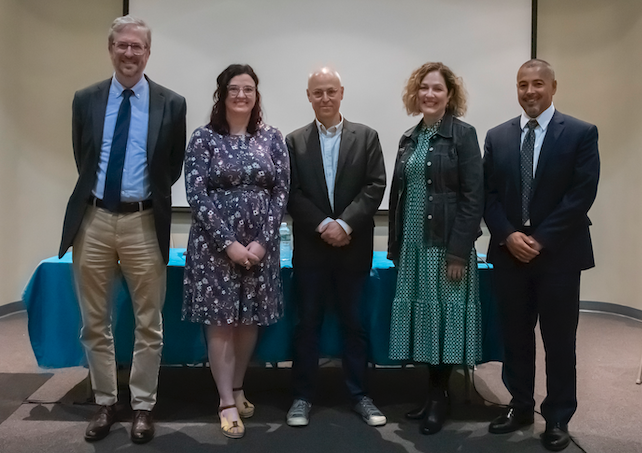
The spellbinding moment was one of many during a panel conversation, a resource fair and an open house-style discussion organized by the Carney Institute's Center for Alzheimer’s Disease Research and hosted by the Memory and Aging Program at Butler Hospital. The event highlighted the incredible advances that have occurred in AD research in the last several years. These developments include researchers pinpointing when and where the disease starts and gaining insight into how to intervene early in the disease course. Most exciting of all, after many years of drug trial failures, this accumulated knowledge has also enabled the development of anti-amyloid treatments, drugs that target and reduce beta amyloid in the brain, one of the earliest hallmarks of the disease.
Panel members Gregorio Valdez, Ph.D. (Brown University), Jessica Alber, Ph.D. (University of Rhode Island), Maritza Ciliberto and Edward “Ted” Huey, M.D. (Butler Hospital) represent “a growing community of researchers and study volunteers who have come to Rhode Island to make a difference in the fight against Alzheimer's,” according to Memory and Aging Program Founding Director Stephen Salloway.
Valdez is a neurobiologist whose scientific contributions have implications for mitigating the negative health effects of normal aging and treating age-related neurological diseases like Alzheimer’s disease, including his current work with glial cells, the cells that help keep the neurons in our brains healthy. Alber is aiming her research at developing a way to use a routine eye exam to detect early changes to AD-related proteins, thereby connecting patients to treatment options well before serious symptoms surface. Ciliberto, an educator who lost her grandmother to a rare form of early onset AD, realized she wanted to get involved in the participant side of research and Alzheimer’s advocacy when her mother was also diagnosed. And Huey is the the Memory and Aging Program’s new director, coming to Butler Hospital from Columbia University’s College of Physicians and Surgeons in March 2023.
One takeaway from the evening is just how much the small but mighty state of Rhode Island has to offer AD research.
“When I started eight years ago there were no blood biomarkers,” said Alber. Now, it is possible to screen blood samples for protein biomarkers like amyloid beta and phosphorylated tau (another nefarious protein involved in Alzheimer’s disease that forms protein tangles in the brain). Blood tests are a huge improvement over other more invasive and time-consuming methods of screening for AD biomarkers like a lumbar puncture, an MRI or a PET scan. “Rhode Island – including Butler’s Memory and Aging Program, Rhode Island Hospital and Brown – played a really big role in validating findings so these tests could become possible,” said Alber.
Rhode Island is also home to global leader in AD research Stephen Salloway, who founded the Memory and Aging Program in 1997 and is “driving change throughout the country and across the world,” according to Diane Lipscombe, Reliance Dhirubhai Ambani Director of the Carney Institute for Brain Science. (In 2019, Salloway was inducted into the Rhode Island Heritage Hall of Fame.) In addition to his dedication to his patients and co-authoring more than 370 scientific articles, Salloway has mentored a younger generation of Rhode Island-based researchers, including Alber.
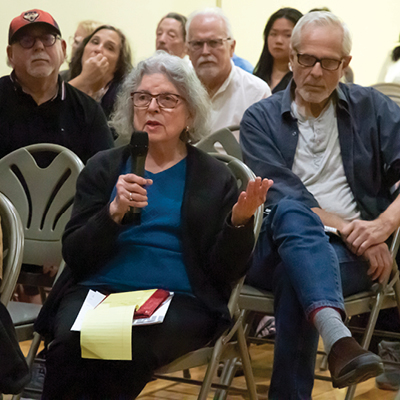
The program Salloway created and the community of study participants he works with were major factors in Huey’s decision to take up the post of director. “Dr. Salloway built an amazing program. It’s one of the best in the country and so to inherit it is an enormous privilege,” Huey said. Further, he pointed to Brown and Carney’s collaborative spirit as an asset vital in this kind of research, where the need to share critical information should be more important than any one scientist’s desire to lay claim to a new finding.
“I had heard the reputation that [Brown and Carney] was a very collaborative place with incredibly smart people who work well together, and it has exceeded my expectations. None of us can do this on our own. Collaboration of specialists is the way forward, and Brown does it better than anywhere I've seen before,” Huey said.
Collaboration, a theme throughout the event, is essential to tackling a problem as multifaceted as Alzheimer’s disease, from the science, to involving patients and study participants, to delivering care and diagnosing a disease that affects such a large percentage of the population.
Ciliberto recalled her thinking in the early days of her involvement, which she shared with researchers when she was deciding whether to enroll in a study: “If we're keeping information from each other and we're not sharing, we're not going to move fast enough. I didn't have time to lose. My family didn't have time to lose.”
Huey described how the more widespread use of virtual conferencing technology has given a major assist to doctors and scientists’ ability to work together across the country and internationally, including the Memory and Aging Program’s collaboration with “the best or one of the best biomarker groups in the world” based in Sweden and led by Oskar Hansson. He also pointed out that barriers still exist, in particular the different regulatory practices on data sharing that vary country to country. “If we can all put our data together and analyze aggregate data, that helps us move the field forward faster.”
Most of all, the night belonged to those in the audience, the people who Stephen Salloway referred to as “the best research participants on the planet” and “a citizen army in the war against Alzheimer’s disease.”
Among their number was Jessie Kingston, a Providence resident who is already a part of Alber’s study, but gamely signed up for the Exome AD Study at the event’s resource fair. Kingston, who lost her mother, Dorothy Ann Hopkins Spahr, to early onset AD, explained that while the studies she’s been a part of are very careful to only share results of genetic testing with the participants who opt in, she was eager to learn hers: “I think knowledge is power.” A collaboration between Brown and the Rhode Island Hospital Alzheimer’s Disease and Memory Disorders Center, the Exosome AD Study aims to identify early markers in saliva that predict future memory loss and dementia.
The Memory and Aging Program is also a research site for the Dominantly Inherited Alzheimer’s Network (DIAN), a longitudinal, observational study of individuals from families carrying a genetic mutation that leads to Autosomal Dominant Alzheimer’s disease (ADAD), a rare, early onset form of Alzheimer’s disease caused by a genetic mutation in one of three genes. This study has provided key data, important not just for the one percent of AD cases this particular variant causes, but for AD and dementia research generally. It’s the study Ciliberto is involved in.
“The only reason we know that amyloid plaques build up 10 to 20 years before the memory loss, and when the [phosphorylated tau] tangles begin and the other changes in the brain is because of that [DIAN] study, because of Maritza and people like her, her family and other families stepping forward,” explained Salloway.
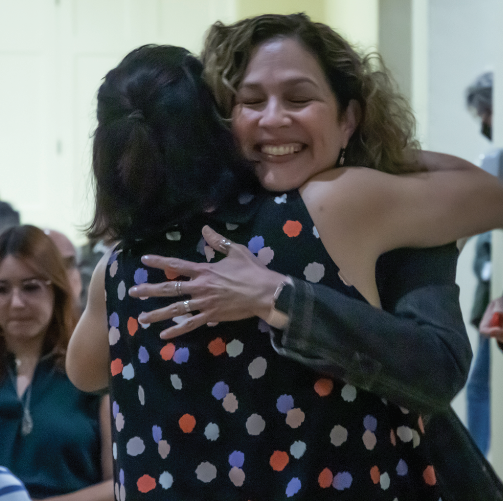
Ciliberto spoke about how her outlook has changed since she got involved with DIAN. “It's so hard to put it in words where I was 15 years ago and where I am today. I landed in a good place where I could be a thought partner. And DIAN has expanded and is an international effort. [In addition to the research side] we've also had family conferences [where] we get to connect with participants from all over the world, share our stories and ideas of how we can support one another.”
This experience of gaining information and support from a community of patients, participants, and scientists, as well as witnessing the tremendous acceleration of research that’s occurred as a result of these efforts, has shaped Ciliberto’s own dream. She offered it up as a complement to Shenk’s: “If all of us, every single person, participated in research to advance science, to make it better for humanity.”
RESOURCES IN THE AREA:
To learn more about Alzheimer’s disease research studies in Rhode Island and how to participate:
Butler Hospital’s Memory and Aging Program
General: www.butler.org/memory
Prevention Registry: www.butler.org/AlzRegistry
Phone/Email: 401-455-6402/[email protected]
RI Hospital’s Alzheimer’s Disease and Memory Disorders Center
General: www.lifespan.org/memory
Prevention Registry: https://www.lifespan.org/centers-services/alzheimers-disease-memory-disorders-center/research/alzheimers-disease-prevention
Phone/Email: 401-444-0085/[email protected]
Support services and educational resources for caregivers and patients living with Alzheimer’s disease or other forms of dementia:
Alzheimer’s Association, RI Chapter
24/7 Helpline: 800.272.3900
